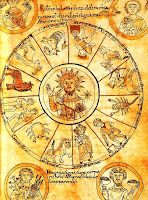
Do we need faith? There are those, theists and non-theists alike who claim that we do. They claim that people need to believe in something; need to have hope in something. Some claim that people can't be good without big brother watching over their shoulder (ironically, many Xians also claim that we can't be good even with god watching over our shoulders!) I find all of these ideas to be condescending, however, and part of the larger problem that religion instills in us - that we should consider ourselves to be unworthy, lowly creatures, worthy of only disdain and scorn and eternal hellfire.
Do we really need some god looking over us to be good people? I don't think so. But, when we are conditioned from an early age to think that we are evil, sinners is it any surprise when people act that way? Yes, some people act badly, but do they do it because they think god isn't watching or because they don't believe in god? No. They do it in spite of the existence or non-existence of god. Similarly, most people do good not because they are constantly calculating what god wants, but because they have values instilled in them from their upbringing and their culture and most importantly from their evolutionary history. Sure, some people perform good acts simply because they believe god is watching them and will reward them, but this actually makes their actions less moral in that they are only doing good to gain a reward.
Anyway, I'm curious to see what other people think. Do we need faith? Do we need to believe in something?






















.gif)

























